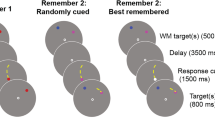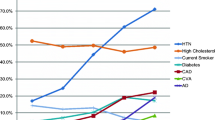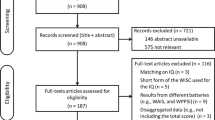Abstract
Whilst much is known about the neuropathological consequences of hydrocephalus, there have been comparatively few studies of the cognitive impairments associated with it. Studies using standardised tests of cognitive function have identified a general pattern of impairments, with patients exhibiting particular difficulty on tests of spatial memory and executive function. A strong prediction is that these deficits are likely to affect daily wayfinding behaviour, and we report a study of spatial and navigational abilities in a group of patients with hydrocephalus but without spina bifida. Participants completed a range of experimental tasks assessing spatial cueing behaviour, landmark memory and route-learning, and idiothetic path integration. This patient group was compared to a control sample matched on verbal, spatial, and intelligence measures, and hydrocephalus was found to be associated with relative impairments in each of the tasks. Patients exhibited reduced sensitivity to spatial cueing, less accurate route-learning, poorer memory for landmark objects, and less accurate spatial updating (with particular impairments in the calculation of heading). Overall, these data represent the first empirical demonstration of navigational impairments in hydrocephalus, and we suggest some of the cognitive, neural, and individual differences factors that may contribute to the pattern of performance reported.
Similar content being viewed by others
References
Fletcher JM, Dennis M, Nothrup H (2000) Hydrocephalus. In: Yeates KO, Ris MD, Taylor HG (eds) Pediatric neuropsychology: research, theory, and practice. The Guilford Press, New York, pp 25–46
Iddon JL, Morgan DJR, Loveday C, Sahakain BJ, Pickard JD (2004) Neuropsychological profile of young adults with spina bifida with or without hydrocephalus. J Neurol Neurosurg Psychiatr 75:1112–1118
Janzen G (2006) Memory for object location and route direction in virtual large-scale space. Q J Exp Psychol 59:493–508
Janzen G, van Turennout M (2004) Selective neural representation of objects relevant for navigation. Nat Neurosci 7:673–677
Loomis JM, Klatzky RL, Golledge RG, Cicinelli JG, Pellegrino JW, Fry PA (1993) Nonvisual navigation by blind and sighted: assessment of path integration ability. J Exp Psychol: Gen 122:73–91
Pellicano E, Smith AD, Cristino F, Hood BM, Briscoe J, Gilchrist ID (2011) Children with autism are neither systematic nor optimal foragers. Proc Nat Acad Sci 108:421–426
Smith AD, Hood BM, Gilchrist ID (2010a) Probabilistic cueing in large-scale environmental search. J Exp Psychol Learn Mem Cogn 36:605–618
Smith AD, Howard CJ, Alcock N, Cater K (2010b) Going the distance: spatial scale of athletic experience affects the accuracy of path integration. Exp Brain Res 206:93–98
Stanton D, Wilson PN, Foreman N (2002) Effects of early mobility on shortcut performance in a simulated maze. Behav Brain Res 136:61–66
Wiedenbauer G, Jansen-Osmann P (2006) Spatial knowledge of children with spina bifida in a virtual large-scale space. Brain Cogn 62:120–127
Worsley CL, Recce M, Spiers HJ, Marely J, Polkey CE, Morris RG (2001) Path integration following temporal lobectomy in humans. Neuropsychologia 39:452–464
Acknowledgments
This work was supported by the Association for Spina Bifida and Hydrocephalus (ADS) and an Economic and Social Research Council research studentship (MGB).
Conflict of interest
This supplement was not sponsored by outside commercial interests. It was funded entirely by ECONA, Via dei Marsi, 78, 00185 Roma, Italy.
Author information
Authors and Affiliations
Corresponding author
Rights and permissions
About this article
Cite this article
Smith, A.D., Buckley, M.G. Spatial navigational impairments in hydrocephalus. Cogn Process 13 (Suppl 1), 329–332 (2012). https://doi.org/10.1007/s10339-012-0505-5
Published:
Issue Date:
DOI: https://doi.org/10.1007/s10339-012-0505-5




